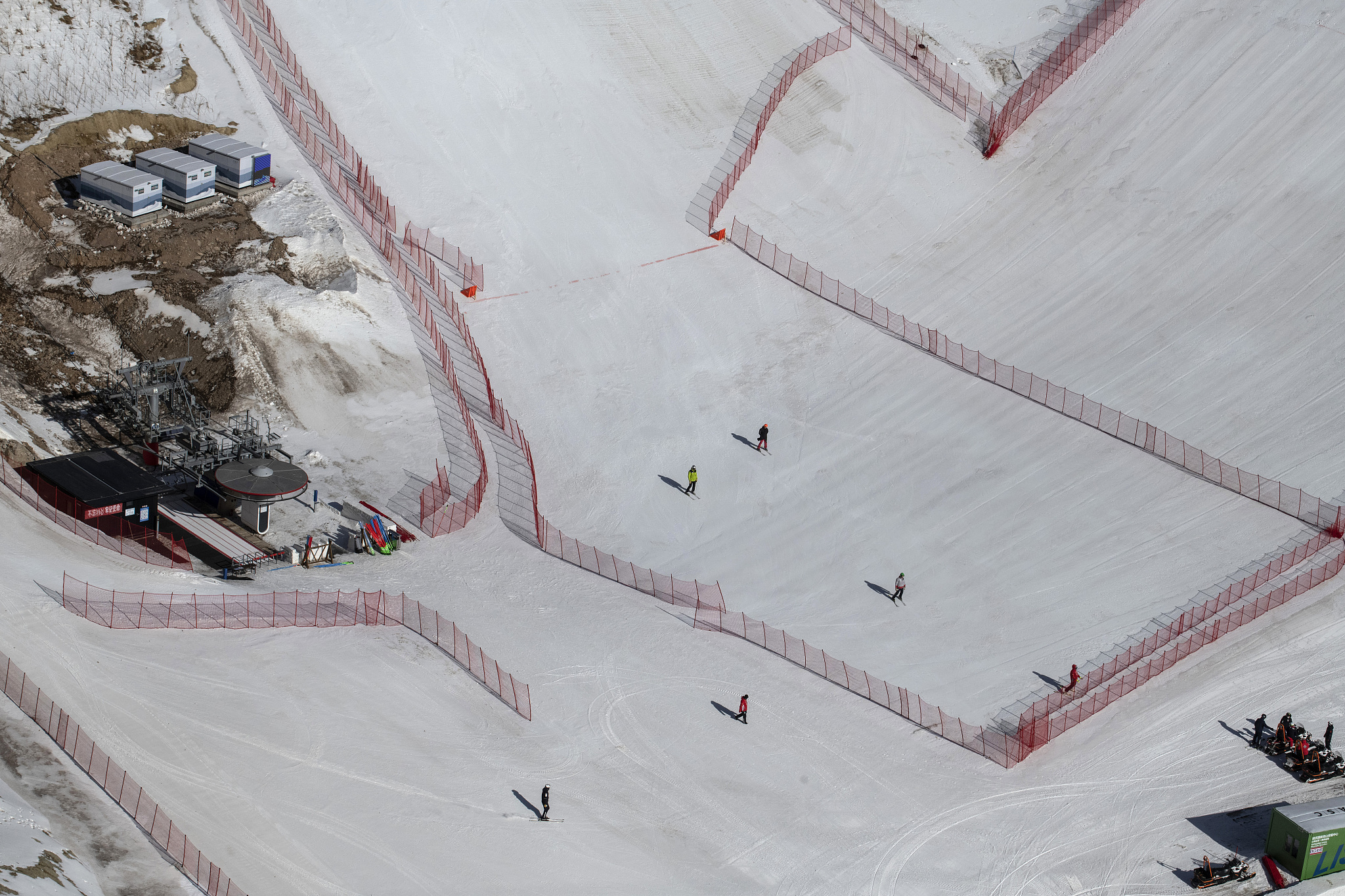
Chinese researchers have joined forces to prepare venues, gear and athletes’ training facilities for the 2022 Beijing Winter Olympics. In 2018, researchers and students from the wind tunnel lab joined the construction efforts of the Winter Olympic venues. The National Alpine Ski Center, one of Beijing 2022’s most technically challenging venues, was built more than 1,200 meters above sea level on Xiaohaituo Mountain in the Yanqing competition zone.
Chinese researchers from the wind tunnel lab studied the wind field data in the Yanqing competition zone and used tunnel tests to assist in the design of the Olympic venues. The team developed a system combining the terrain, awning and sunshade to reduce the impact of solar radiation. They analysed the sun’s height in spring, autumn and winter, and used computer models to simulate and determine the awning and sunshade coverage on the track.
The first bobsleigh developed in China was exhibited in Shougang Park, the Beijing 2022 Olympic and Paralympic Winter Games headquarters. The Chinese team has been relying on imported sleighs for training and competitions. A research and innovation consortium of 12 industry units was established to make the Chinese bobsleigh from scratch.
China’s space technologies played a role in developing the country’s first homemade bobsleigh. The China Academy of Launch Vehicle Technology chose carbon fibre composite material to make the bobsleigh lighter and used a streamlined design to fit the body shape of Chinese athletes.
The sleighs went through wind drag tests at the China Academy of Aerospace Aerodynamics (CAAA), and their shapes have been optimized to experience lower resistance and higher speeds. The homemade sleighs have an 8% lower wind drag, significantly boosting athletes’ performance. The sleigh is expected to be delivered to Chinese athletes in mid-September and make its debut in the 2022 Beijing Winter Olympics.
Finding the most aerodynamic position is vital for athletes across many sports, and many use wind tunnels to train. Testing performance in the wind tunnel can help optimise sportswear and equipment to reduce drag, and help athletes find their winning postures. A member of the wind tunnel lab said that more than 10 national Winter Olympics teams had completed wind tunnel tests and data analysis at the lab as of mid-July.
The CAAA also developed a wind tunnel to help train Chinese athletes for the 2022 Winter Olympics. The maximum wind speed in the tunnel is 42 meters per second. A 6 DoF (degree of freedom) skeleton sled training system has been developed with the help of virtual reality and digital simulation technologies. The system, which gives athletes the feel of training on an actual track, can calculate the gravity, wind resistance, and track friction data in real-time and help athletes form muscle memory at turnings.
At the Tokyo 2020 Olympic Games, China also utilised technologies to help its athletes improve their performance. As reported by OpenGov Asia, many of the Chinese athletes are benefiting from technological assistance from China’s space scientists and engineers. Before setting out for the Tokyo Games, dozens of athletes in the Chinese delegation visited an area in the southwestern suburbs of Beijing that is home to several leading space technology organisations.
During their stay, the athletes were exposed to technologies normally used in the research and development of carrier rockets, missiles and unmanned planes, and listened to suggestions from experts from the China Academy of Aerospace Aerodynamics. China used technology and equipment to help rowers, swimmers and cyclists in the national team to improve their training and performance.
















